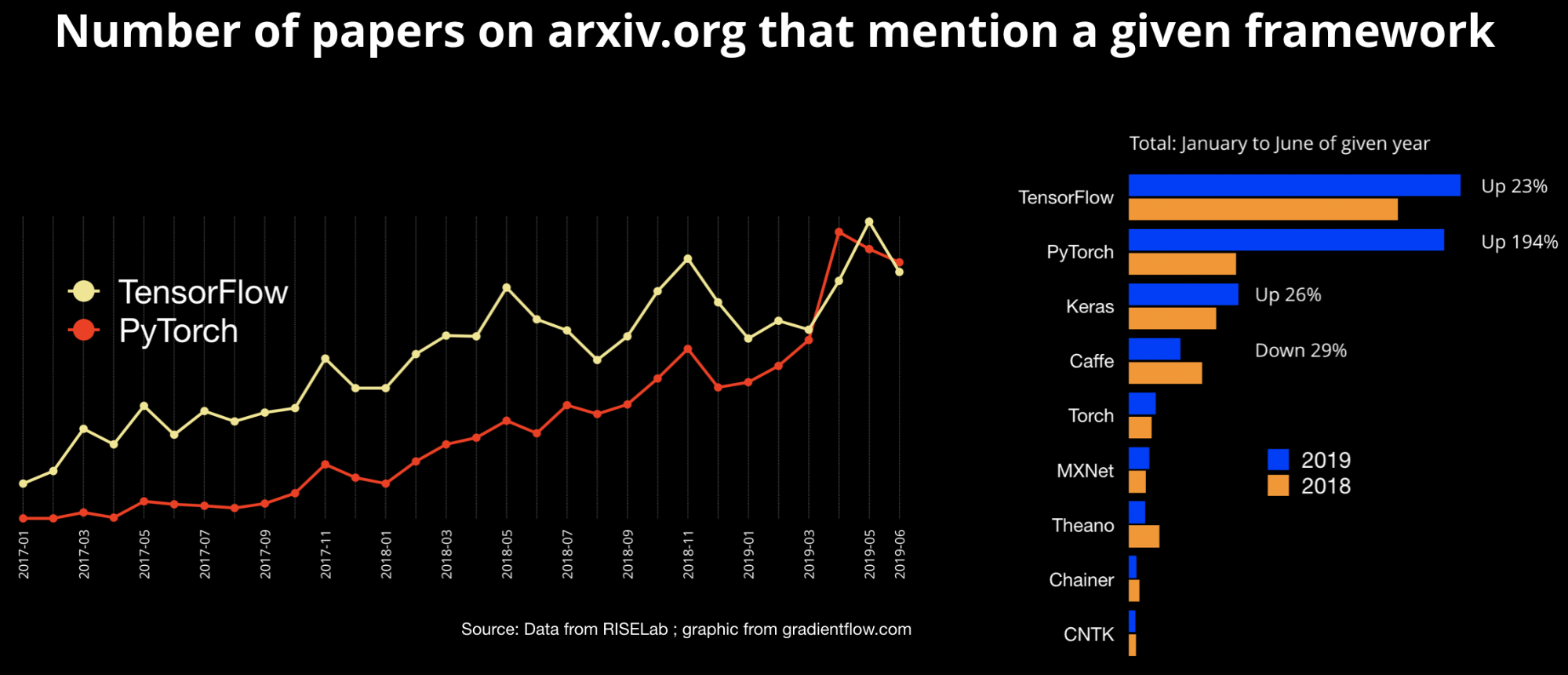One simple graphic: Researchers love PyTorch and TensorFlow
Interest in PyTorch among researchers is growing rapidly.
 Research lab (source: SMU Libraries Digital Collections on Flickr)
Research lab (source: SMU Libraries Digital Collections on Flickr)
In a recent survey—AI Adoption in the Enterprise, which drew more than 1,300 respondents—we found significant usage of several machine learning (ML) libraries and frameworks. About half indicated they used TensorFlow or scikit-learn, and a third reported they were using PyTorch or Keras.
I recently attended an interesting RISELab presentation delivered by Caroline Lemieux describing recent work on AutoPandas and automation tools that rely on program synthesis. In the course of her presentation, Lemieux reviewed usage statistics they had gathered on different deep learning frameworks and data science libraries. She kindly shared some of that data with me, which I used to draw this chart:

The numbers are based on simple full-text searches of papers posted on the popular e-print service arXiv.org. Specifically, they reflect the number of papers which mention (in a full-text search) each of the frameworks. Using this metric, the two most popular deep learning frameworks among researchers are TensorFlow and PyTorch. From January to the end of June 2019, about 1,800 papers mentioned TensorFlow and a comparable number mentioned PyTorch. Most notably, interest in PyTorch among researchers is growing rapidly: it grew 194% year-over-year (Jan-Jun 2018 compared to Jan-Jun 2019).
To the extent that researchers and teachers are harbingers and strongly influence what future professionals might use, look for PyTorch to also gain users among data scientists, developers, ML engineers, and companies. In a recent post, we outlined the suite of tools for managing machine learning in the enterprise. Many of the tools and companies we highlighted in that post support the popular ML libraries and deep learning frameworks (particularly TensorFlow and PyTorch), thus we predict both of these frameworks will be equally viable options for enterprise users.
Related content:
- “Modern deep learning: Tools and techniques”: A new tutorial, September 10, 2019, at the Artificial Intelligence conference in San Jose
- “RISELab’s AutoPandas hints at automation tech that will change the nature of software development”
- Ion Stoica on “AI and systems at RISELab”
- “AI and machine learning will require retraining your entire organization”
- “What are model governance and model operations?”
- “One simple chart: Who is interested in Spark NLP?”
- “AI adoption is being fueled by an improved tool ecosystem”
- “The quest for high-quality data”
